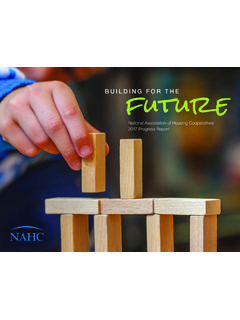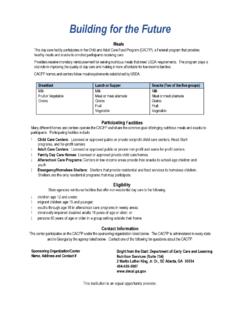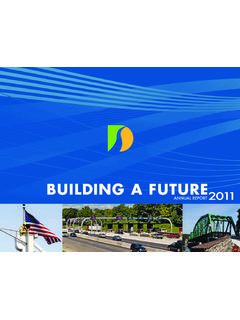Transcription of BUILDING THE HYPERCONNECTED FUTURE ON …
1 FEBRUARY 2017In Collaboration withBUILDING THE HYPERCONNECTED FUTURE ON BLOCKCHAINS This report hopes to bring the World Government Summit a fresh perspective on the current state of blockchain technology. The report explores how the blockchain will drive positive changes in nearly every area of civic life over the next ten years. Both national and municipal governments will realise these benefits as they adapt and adopt these technologies to meet diverse requirements, smoothly integrating into the technological fabric which supports and serves their citizens. The global economy may also realise real benefits as the reduced transaction costs and increased security provided by the blockchain foster innovation in the global systems of trade which support us all.
2 Security and reliability are core requirements of FUTURE computing systems. The blockchain is a bold new innovation that will bring this reliability and trust into every walk of SUMMARY3 BUILDING the HYPERCONNECTED FUTURE on BlockchainsINDEX02 EXECUTIVE SUMMARY05 THE BLOCKCHAIN PRIMER GLOBALIZATION to AdoptionCASE STUDIESI dentityAutonomous TransportationEnergyHealthcare28 REFERENCES5 BY INTERNET OF AGREEMENTSB uilding the HYPERCONNECTED FUTURE on Blockchains6 THE BLOCKCHAIN PRIMERWHERE IS THE CENTRE OF THE WORLD?Electronic communications have brought us closer together than ever before but we are still not quite in the same person-to-person communication, a tiny delay as our messages bounce around the world does not matter much.
3 We may have to restart a few sentences on a video call, but we can overcome it. In computer systems a lot can happen in a few fractions of a second. At peak demand, VISA processes 24,000 credit card payments in one second. In the delay that a message takes to get to San Francisco and back, VISA has processed thousands of New York Stock Exchange processes orders as they arrive. The closer you are to the exchange, the faster your orders clear. This has produced the high frequency trading phenomenon, as traders cram more and more computers as close as possible to exchanges around the world. Central clearing houses can never be fully fair if they operate at the speed of light: the closest player will always have an unfair gets to be at the centre of our globalized world?
4 FAIR PLAY IN A DECENTRALIZED WORLD The blockchain is a technology for fair play in a globalized world. It processes transactions and stores data much like any other computer system, but in a way which is incredibly useful for solving today s works by promoting 3 fairness advantages:1. everywhere is the same because a blockchain has no center. Blockchain aficionados call this decentralization. There are no central clearing houses to move computers closer to. Transactions clear in the same amount of time regardless of where in the world they were issued. This means fair play for everybody regardless of their location. This is achieved by running transactions in small batches called blocks.
5 2. the record is permanent to protect transactions. A benefit of decentralization is extremely strong cybersecurity. The process which lets many computers all over the world process transactions together also means that if a machine is compromised, it does not affect the rest of the computers holding the blockchain. A blockchain is a secure sequence ( chain ) of nobody is in charge of the global blockchain as a whole. It is operated by a fair consensus which makes all participants equally responsible and equally capable. Local blockchains can be run by a sovereign entity or a company, and they can choose who can participate, similar to an existing corporate network but more secure.
6 Global blockchains work more like the internet itself: anybody can participate, but without compromising the inherent security of the attributes were first realized in a system called Bitcoin, which created a digital money used mainly by internet natives who dreamed it might some day become a rival to gold as a store of value. Bitcoin continues to compete for space as an international currency, but the main innovation has moved past it into a new domain: smart the HYPERCONNECTED FUTURE on BlockchainsSMART CONTRACTSA smart contract is a way of making a deal, and locking in all the details, using the fairness and security of the blockchain.
7 These agreements could be simple things like a bond or an option, or more complex instruments which look more like a small computer program than a financial instrument as it is commonly understood. The financial industry already uses a lot of software to represent financial instruments, so this is an extension of existing smart contract can also interact with the real world. For example, imagine a self-driving car that needs to recharge. Both the charging station and the car can access the blockchain using wireless internet. The smart contract says it will pay for electricity at a pre-agreed price.
8 The charging station checks if the car is the car listed on the contract, and the smart contract automatically pays as the electricity is systems could provide this kind of functionality, but none with the elegance and simplicity of a smart contract. In a world with enormous numbers of smart devices cooperating to produce high quality services, this functionality may be a key security, reliability and service Another way to see the blockchain is as a register or ledger. The attributes of fairness, permanence and so on are a good fit for what we want from record keeping systems, including public records.
9 A blockchain allows one to check if an item is provably unique: exactly one owner for a car, or BUILDING , or domain name. This attribute is useful and convenient within a nation, helping with routine processes like asset transfers. It is also potentially very useful internationally because it provides a single source of truth when doing transactions in an unfamiliar environment. In the UK, for example, selling a house is a complex multi-stage process involving several intermediaries who execute an essentially medieval bureaucratic process to effect a property transfer. The UK Government Digital Service Registers Authority is examining how blockchains and similar systems could streamline processes as simple as registering a new company and as complex as proving identity to issue passports.
10 The hope is that a standard technology for maintaining and publishing government statutory registers could make many operations both inside of government and in business easier, more convenient, and safer. The safety and integrity of public records, in an age of increasing cybersecurity concerns, is we created the initial ideas which grew into the Dubai Blockchain Strategy, our intention was to build on the pre-existing strengths of government. Secure record keeping is a core competence of the state. New technology allows government to extend its services in new ways. The original conception inside of Bitcoin and Ethereum (two leading blockchain projects) was that many goverment-type services could be provided without strong reliance on state support.









